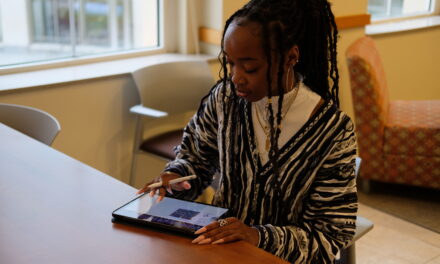This weekend, Emory University Hospital’s Serious Communicable Diseases Unit (SCDU) admitted a patient who has been confirmed to have Lassa fever, an endemic and viral illness that causes symptoms which resemble those of Ebola virus, according to a March 11 University press release.The U.S. State Department requested that Emory receive the patient, who had been working as a missionary in Togo, West Africa, according to the release. Representatives from Emory Hospital refused to identify the patient to maintain confidentiality.SCDU, a biocontainment unit that manages serious infectious diseases, will treat the patient, whose condition of Lassa fever virus was confirmed by the Centers for Disease Control and Prevention (CDC) on March 13, according to a CNN article.Lassa disease is characterized by minor symptoms, such as fever, headaches and weakness, as well as more severe symptoms, such as vomiting, permanent hearing loss, neurological tremors, swelling, respiratory distress and encephalitis, according to the CDC’s website. Symptoms usually occur one to three weeks after the virus is transmitted to the individual, according to the CDC. About 80 percent of Lassa fever virus infections are mild, but about 15 to 20 percent of those hospitalized for the virus (one percent of all Lassa infections) result in death, according to the CDC.In 2014, Emory announced that the SCDU had successfully treated and discharged four patients diagnosed with the Ebola virus, which causes symptoms similar to those of Lassa fever. However, Lassa fever is less likely to be transmitted between individuals and has a lower death rate than Ebola, according to the CDC.Colleen Kraft, an Emory assistant professor of medicine and specialist in the fields of pathology and infectious diseases, said that the SCDU team’s experiences treating Ebola virus patients may be helpful while treating the current Lassa virus patient, given that he or she has symptoms similar to Ebola.She also noted the significance of such treatment experience.“[The SCDU] is going to do [similar treatments] more often, and our hospitals here are ready for that,” she said. She added that the U.S. State Department made the decision to treat the patient in the United States rather than Africa, a choice with which and Emory was not directly involved.Treatment experience is also relevant when it comes to diagnosing patients. The Lassa patient’s diagnosis was not initially confirmed when the patient arrived at SCDU, an uncertainty that is not out of the ordinary, according to the University press release.“Because the symptoms of Lassa fever are so varied and nonspecific, clinical diagnosis is often difficult,” according to the CDC. The website also said that Lassa virus can be transmitted through direct contact with an infected rodent, Mastomys natalensis, which is more commonly known as the “multimammate rat,” through exposure to secretions or excretions of another individual infected with the virus, or through direct infection via exposure to one’s blood or tissue. Lassa virus is not an airborne virus and cannot be spread through casual contact. The virus is usually transmitted in West African countries, such as Sierra Leone, Liberia, Guinea and Nigeria, according to the CDC.Although the CDC estimates that 5,000 individuals in West Africa die from the virus each year, there have been several cases of the virus in the United States. Most recently, the CDC, in conjunction with the New Jersey Department of Health, confirmed a death due to Lassa fever in May 2015 of an individual returning from travel in Liberia. This was the sixth known occurrence of the virus in the United States since 1969, according to a CDC press release.However, Kraft said that there should not be fear of contagion from the Lassa virus patient, noting that Emory’s hospital has prepared a secure location and personal protective equipment for the patient and his or her treatment, including specialized clothing for hospital employees who will work directly with the patient.Any concern should lie with travelers who encounter viruses abroad but are undiagnosed and unaware of their condition, Kraft said.“We always say that the risk is not the known, but the unknown.”
Lauren is an Environmental Science and Media Studies double major from Braselton, Georgia. She is a staff writer for the Emory Wheel, a member of Pi Beta Phi, president of Emory Running Club and a member of the Emory Environment Senate Committee. In her free time, she likes to play with her four dogs, including one named Kat!






